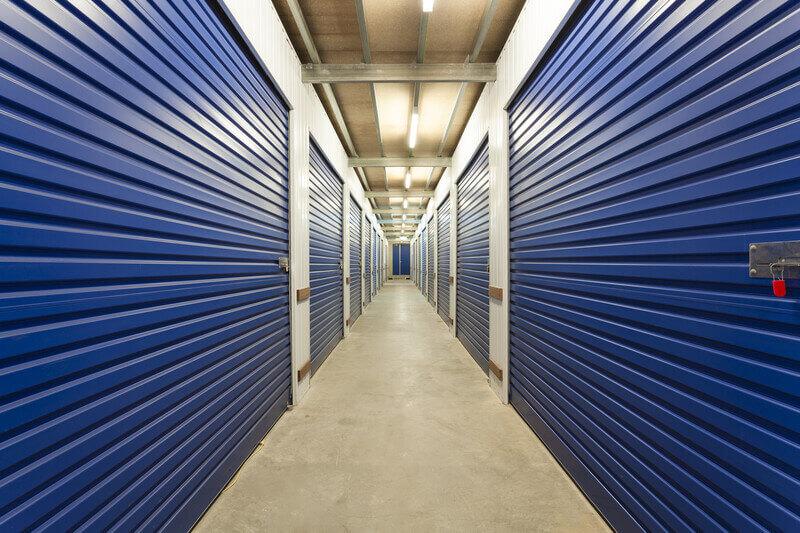This article will explore how to find 24/7 self-storage units, the benefits of all the time access, and tips on choosing the right spot for your storage needs.
We go into the details of pricing, the factors to consider when booking, and give you the total lowdown on it.
Storage Leaves Room For Adventure
Whether you’re in between homes, need extra space for your growing collection of surfboards, or just want to clear out some junk in your home, self-storage can be a convenient and cost-friendly solution.
Not all storage units offer the same access or security, so understand the differences to make the best choice for your family. If you need access to your things any time of day or night, finding a 24/7 self-storage unit is a must.
Let’s Start Basic: What Are 24/7 Self-Storage Places?
A 24/7 self-storage unit allows you to access your storage space anytime, day or night. Traditional storage units usually have restricted hours you can enter, operating from 9 AM to 6 PM like a typical work day, 24/7 units are available at any time you want.
This level of flexibility is key for people who work during these hours, have urgent needs, or need to access their items whenever they want and maybe need to access their unit more often.
Key reasons to get a 24/7 self-storage unit:
- You can enter the storage anytime, usually through an automated gate or passcode.
- Great security systems, with cameras, lighting, alarms, and access control.
- Flexible access to your belongings is a huge benefit as life is dynamic.
- If you run a business and need access to inventory or equipment outside of normal business hours, 24/7 storage can be a perfect solution.
- In some cases, you might need access to your things in an emergency. Having a 24/7 self-storage unit makes it so that you’re not restricted to business hours, making it easier to handle urgent situations.
Not all self-storage units are open 24/7. If you want this, finding facilities specifically catering to this need is important.
Cost of 24/7 Storage Units by Size and Location
The cost of a 24/7 self-storage unit depends on many factors like location, size, climate-controlled vs. standard, and the extras offered by the facility. Don’t forget to pay for climate control if your items are sensitive to heat or cold. Here is an average breakdown of units in the Midwest:
1. Small Units (5×5 or 5×10 feet)
These units store personal items, small furniture, or boxes of extra items.
- Average Cost: $40–$120 per month
- Climate-Controlled: $60–$150 per month
2. Medium Units (10×10 or 10×15 feet)
A 10×10 unit is ideal for storing the contents of a one-bedroom home, and a 10×15 unit can hold the contents of a two-bedroom apartment usually.
- Average Cost: $100–$200 per month
- Climate-Controlled: $130–$250 per month
3. Large Units (10×20 or 10×30 feet)
These are used for larger household moves or business storage. A 10×30 unit is big enough for the contents of a 3-4 bedroom house.
- Average Cost: $200–$400 per month
- Climate-Controlled: $250–$500 per month
4. Vehicle Storage
If you’re looking for a storage unit specifically for your car, boat, or van, the prices can vary based on location, size, and whether it’s indoor or outdoor storage. Usually, you can find cheaper alternatives than official storage facilities.
- Outdoor Car Storage: $50–$150 per month
- Indoor Car Storage: $100–$300 per month
- Boat/RV Storage: $100–$400 per month (depending on whether it’s outdoor or climate-controlled)
What Affects the Costs and Where Can I Save
1. Location
Storage units in major cities tend to be more expensive due to demand and limited space.
Units outside of large cities are typically more affordable. In these areas, you might find a 10×10 unit for as low as $100 per month. If you don’t need constant access, leave the city for your storage and save big.
2. Climate-Controlled
Climate-controlled units are priced higher because they are designed to protect sensitive items from extreme temperatures and humidity. These units usually cost 20%–50% more than standard units since the company will be paying for ac or heating bills.
3. Security and Extras
Facilities offering 24/7 access often come with CCTV cameras, gated access, and alarm systems. The more features, the higher the price. If you want a unit with keypad access and high-end security, expect to pay more.
4. Hours
Some storage facilities offer extended hours of access but might charge extra for 24/7 access. It’s always a good idea to ask. Facilities that explicitly advertise “24/7 access” might charge an additional $5–$20 per month for this.
5. Season
Prices change in tourist-heavy areas and during peak moving seasons (spring and summer). If you’re moving during the off-season, you might find discounts.
What’s Included?
When comparing storage facilities, it’s important to understand what’s included in the price.
- 24/7 access
- CCTV cameras, gated access, alarm systems, and sometimes on-site security guards.
- Maintenance and upkeep
Extras you should ask about:
- Some facilities make renters get insurance for their things
- Some facilities ask for a security deposit, which is refunded when you leave the unit.
- One-time setup or administrative fee
National Reccs:
If you’re looking for a reliable, nationwide choice, these are a few chain storage providers that offer extended hours or full 24/7 access:
- Public Storage: Public Storage company has many locations with 24/7 access. It’s one of the largest self-storage chains.
- Extra Space Storage: Extra Space is another national provider.
- CubeSmart: Some CubeSmart locations offer 24-hour access with excellent security.
- Life Storage: Known for flexible access hours, Life Storage also offers some locations with 24/7 entry.
Guide to Choosing the Right 24/7 Storage Facility For You
Many storage facilities can work, but here are a few tips to consider when you choose what is the best fit:
- If you are storing commonly used items, choose a storage unit that’s conveniently located near your home, business, or places you go often. Consider the distance to major roads, traffic conditions, and more.
- Security needs and offers. If you are storing valuables, this is key.
- Pricing that works for your wallet.
- Review the contract terms to understand the rental period, deposits, and cancellation policies.
- Choose a unit size that fits your needs.
- If you’re storing sensitive items, get a climate-controlled unit. It is worth it.
Wrapping Up That Unit
Finding a 24/7 self-storage unit isn’t rocket science, just make sure it fits your needs. Consider constant access, security, unit sizes for your needs, and more. These storage units are a perfect solution for people and businesses who need flexible and convenient storage options. Whether you are storing your life and flying to Thailand or just between jobs, we have you covered with Pricing Van Lines.
Frequently Asked Questions
How far in advance should I start planning my move?
Start planning your move at least 6–8 weeks in advance, especially if you need to book movers, need storage, or haven’t locked down all the details. If you’re moving long-distance or internationally, plan even earlier (3–6 months).
What’s the best way to pack fragile items?
To pack fragile items safely, wrap them in bubble wrap or towels. Use strong boxes and fill any space with more bubble wrap to prevent movement. For glass items, you can use towels or sheets to cushion them. Label boxes containing fragile items clearly with “Fragile” on multiple sides. Don’t overstuff any box.
Should I hire movers or DIY it?
Hiring professional movers is the best option if you can afford it. If you have a lot of heavy furniture or delicate items, movers are worth the cost for safety and productivity. If you’re on a tight budget or have a small, manageable amount of things, you might rent a truck and do it yourself. Just keep in mind that it doesn’t always work out cheaper.
How can I save money on my move?
Do it yourself if possible by renting a truck and asking for help frmo friends or family. Purge yourself from unnecessary items before the move to reduce the amount you need to pack and move. Compare moving companies and get multiple quotes to find the best price. Ask for discounts. Use free packing materials, such as boxes from grocery stores, newspapers, or old clothes, to cushion the items.
What should I do if I need to move at the last minute?
If you need to move last minute, focus on packing the essentials, like important documents, clothing, and personal items. Hire a same-day moving company. Use temporary storage to store things if you cannot find a permanent home as soon as possible. Stay organized and prioritize your packing to make the process as smooth as possible. Enlist the help of friends in this situation.




